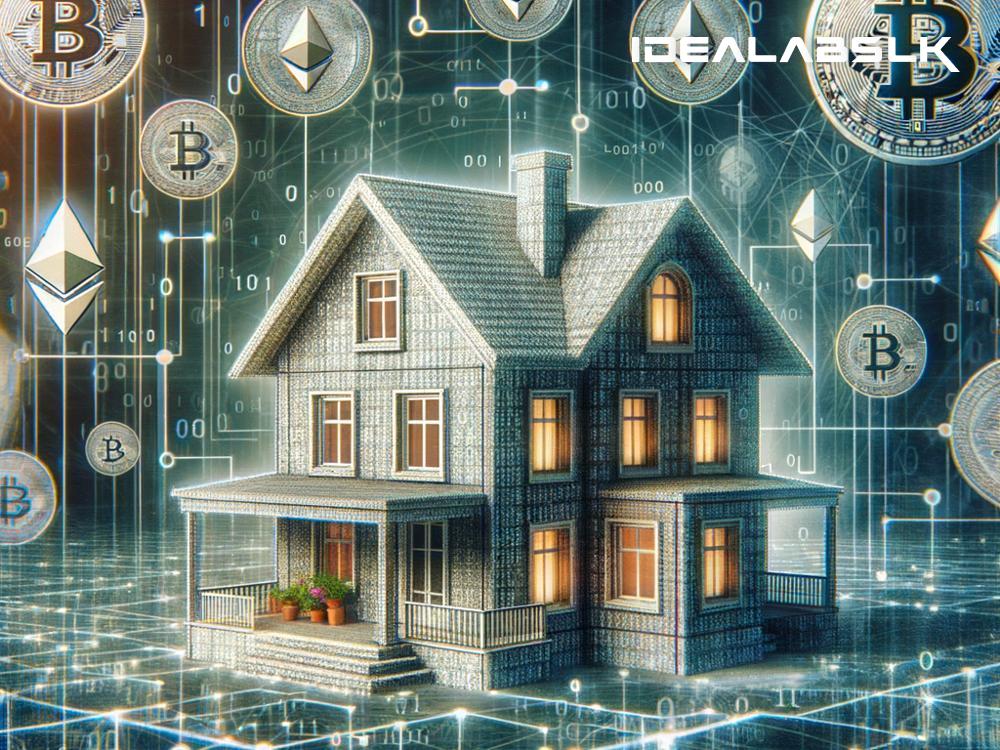How Blockchain is Revolutionizing Real Estate with Cryptocurrencies: A Simple Guide
The world of real estate is undergoing a significant transformation, all thanks to the groundbreaking technology known as blockchain. Coupled with the power of cryptocurrencies, this dynamic duo is streamlining the way we buy, sell, and invest in properties, making transactions faster, more transparent, and accessible to a global audience. But what exactly is going on? Let’s break it down into simple terms.
Understanding Blockchain and Cryptocurrencies
Before diving into the nitty-gritty of real estate, it's essential to understand the basics of blockchain and cryptocurrencies. Imagine blockchain as a digital ledger that is completely open and accessible to anyone on the internet. This ledger meticulously records every transaction, like a diary that never lies or forgets, ensuring complete transparency and security.
Cryptocurrencies, such as Bitcoin and Ethereum, are digital forms of money that exist on the blockchain. They can be used to buy goods, services, and yes, even real estate, without the need for traditional banks or currency.
The Impact on Real Estate Transactions
-
Faster Transactions: The traditional real estate transaction process is notorious for being slow and bureaucratic, often requiring multiple parties and paperwork. With blockchain, the need for these intermediaries is greatly reduced, allowing for faster, more efficient transactions. Instead of waiting days or even weeks for bank approvals and paperwork processing, blockchain transactions can be completed in a matter of minutes or hours.
-
Reduced Costs: By eliminating many of the middlemen (like banks and lawyers) traditionally involved in real estate transactions, costs can be significantly reduced. This includes fees for escrow services, legal fees, and banking charges. The savings can be substantial, making real estate investment more accessible to a wider audience.
-
Global Market Access: Cryptocurrencies are global by nature, making it easier for buyers and sellers from different countries to engage in transactions without worrying about currency exchange rates or international banking fees. This opens up the real estate market to international investors, increasing the potential buyer pool and creating more opportunities for sellers.
-
Transparency and Security: The blockchain ledger records every transaction in detail, which is publicly accessible and highly secure. This transparency reduces the risk of fraud and makes it easier for buyers and sellers to trust the process. Plus, once a transaction is recorded on the blockchain, it cannot be altered or deleted, which protects against tampering and ensures the integrity of the transaction history.
-
Tokenization of Real Estate: One of the most exciting developments in the intersection of blockchain and real estate is the concept of tokenization. This involves dividing property into digital tokens that represent shares of the property. These tokens can be bought and sold on the blockchain, enabling investors to own fractions of real estate properties. This not only makes real estate investment more accessible but also creates a more liquid market for real estate assets.
Real-World Examples
The practical applications of blockchain and cryptocurrencies in real estate are already taking shape around the globe. For instance, in countries like the United States and Dubai, there have been instances where properties were bought and sold entirely using Bitcoin. Furthermore, several companies are pioneering the tokenization of real estate, allowing investors to purchase fractional ownership in properties with cryptocurrencies.
Looking Ahead
The potential of blockchain and cryptocurrencies to streamline real estate transactions is immense. As the technology continues to evolve and gain acceptance, we can expect to see more innovations, more efficiency, and more inclusivity in the real estate market. Challenges such as regulatory hurdles and market adoption will need to be addressed, but the trajectory is promising.
In conclusion, blockchain and cryptocurrencies are not just futuristic concepts; they are practical tools revolutionizing the real estate industry today. By making transactions faster, reducing costs, and opening up the global market, they are making real estate more accessible and appealing to a new generation of investors. As we move forward, the synergy between these technologies and the real estate sector will likely continue to grow, unlocking new possibilities and opportunities for everyone involved.

